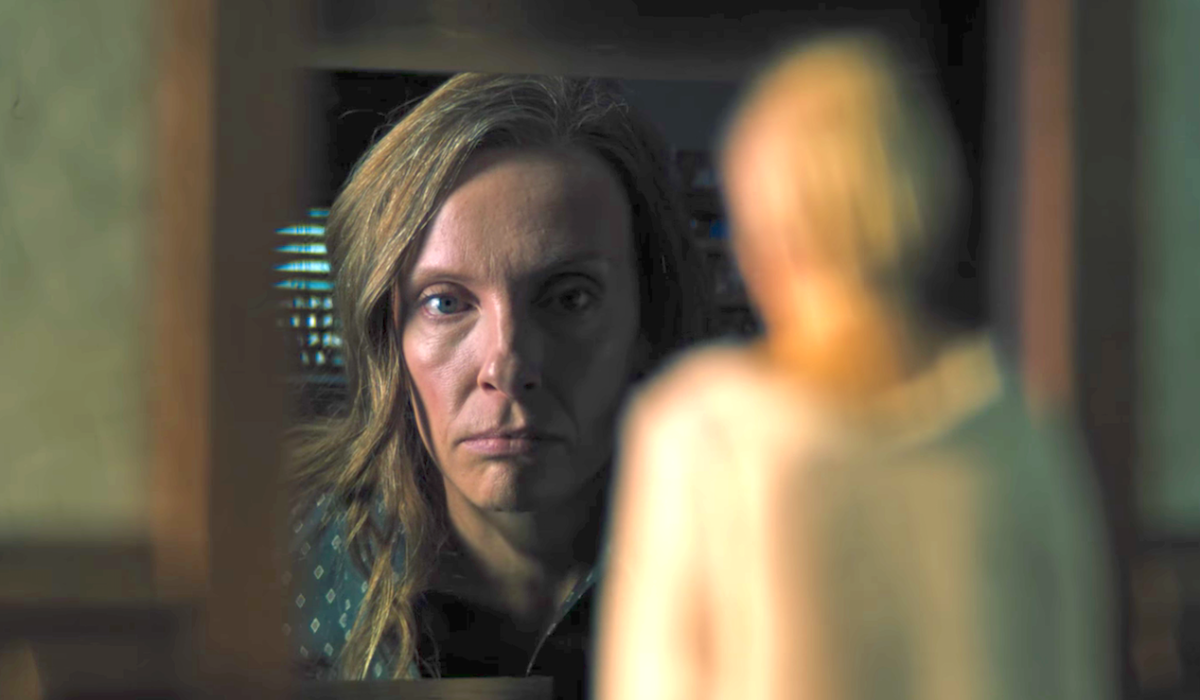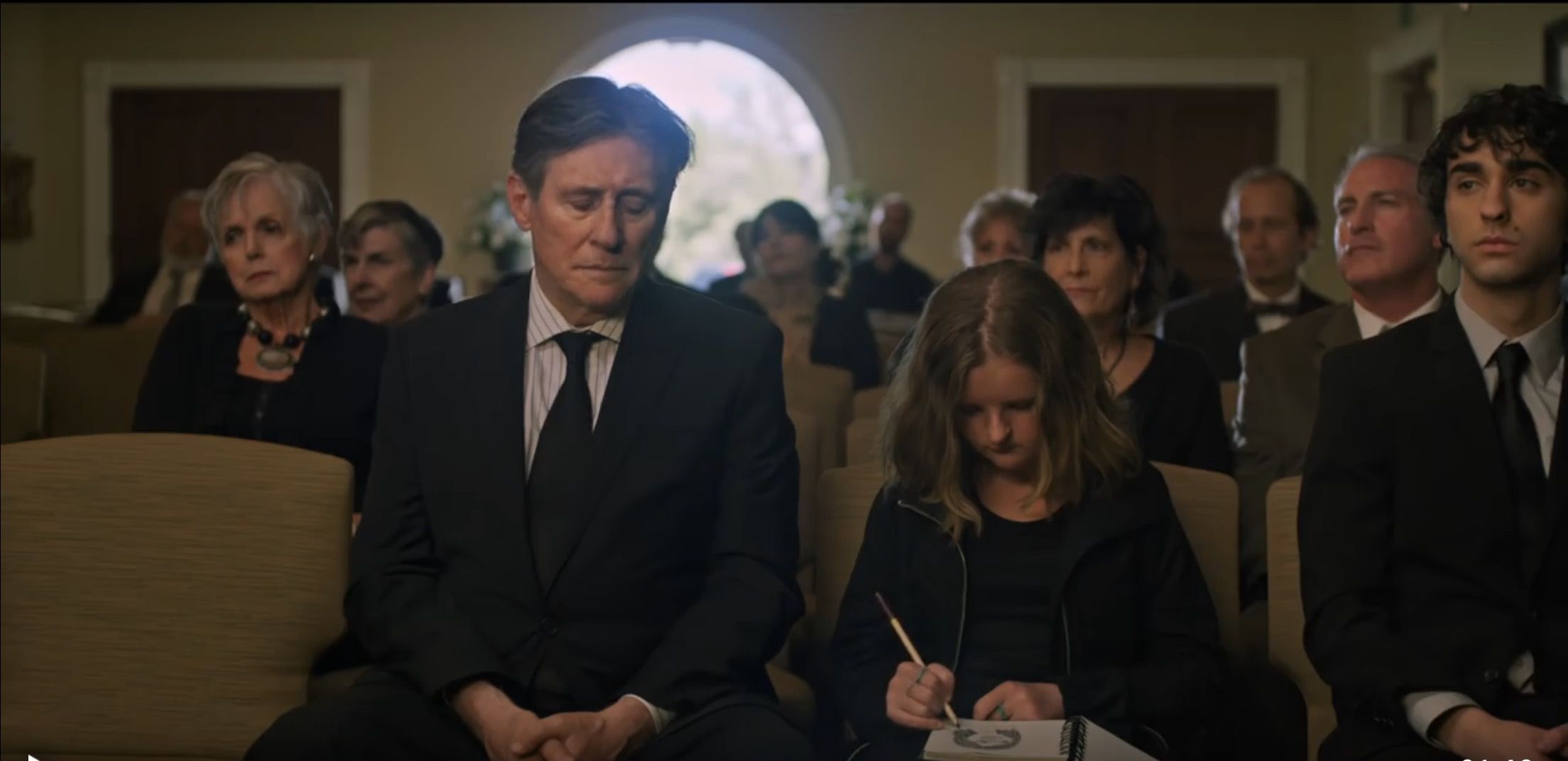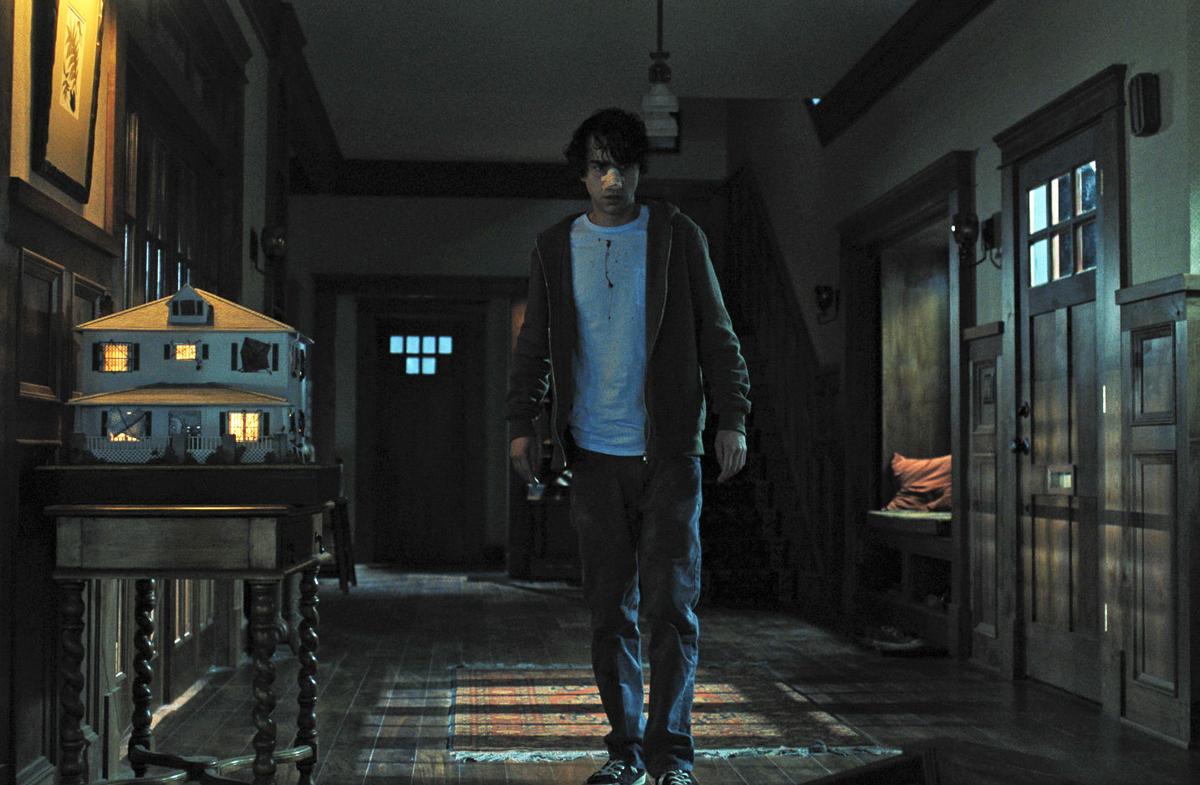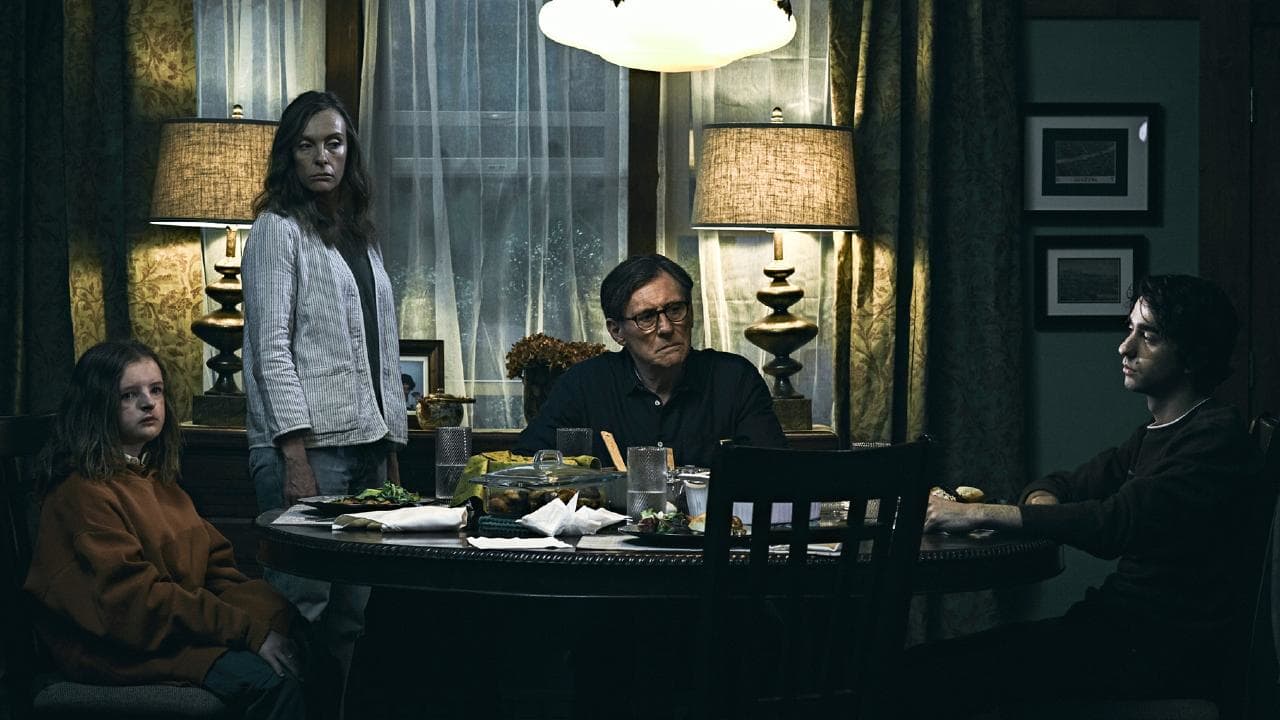Miniatures are inherently unsettling. Like all copies of the world, they carry a whiff of the uncanny, and a possibility that they will escape the control of their creators; in horror movies, we are particularly trained to expect them, infused with some breath of terrible life, to rise up and wreak havoc. In Hereditary, when we are introduced, with a razor-sharp buzz on the score and a bravura opening shot, to Toni Collette‘s Annie as an artist who works with miniatures, there’s every reason to expect the worst from these little things she’s brought into the world.
 This moody speculative horror is the best of the three films that writer/director Ari Aster (with a huge assist from cinematographer Pawel Pogorzelski) have crammed, not always comfortably, into their dollhouse. Hereditary falls in that long line of horror, stretching back to Frankenstein, that mines parental anxieties, and maternal ones in particular, for resonance. (The Babadook is an obvious touchstone, but instead I kept thinking of We Need To Talk About Kevin.) And then there’s also a kitchen-sink realism, too; for long stretches in the early going, Hereditary feels an awful lot like a dramatic portrait of a deeply unhappy family, claustrophobically imprisoned in their small world. If madness took the form of God in the walls, we might be headed in a different direction.
This moody speculative horror is the best of the three films that writer/director Ari Aster (with a huge assist from cinematographer Pawel Pogorzelski) have crammed, not always comfortably, into their dollhouse. Hereditary falls in that long line of horror, stretching back to Frankenstein, that mines parental anxieties, and maternal ones in particular, for resonance. (The Babadook is an obvious touchstone, but instead I kept thinking of We Need To Talk About Kevin.) And then there’s also a kitchen-sink realism, too; for long stretches in the early going, Hereditary feels an awful lot like a dramatic portrait of a deeply unhappy family, claustrophobically imprisoned in their small world. If madness took the form of God in the walls, we might be headed in a different direction.
But it’s not God in these walls. When Annie’s not locked away in a room of her own, meticulously rendering the details of her life in miniature for an upcoming gallery show, she’s also mother to Peter (Alex Wolff) — a detached, usually stoned high schooler who, Hereditary seems curiously fixated on informing us, owns a very big keyboard — and his younger sister Charlie (Milly Shapiro), who does a clucking thing with her tongue, draws weird pictures, and collects the heads of dead birds. (Charlie, introduced sleeping in the cold treehouse out back, in particular does not seem well; the jury is out on whether or not she plays the keyboard.) Husband Steve (Gabriel Byrne, Irish King of the Weary Slouch) benevolently hangs around in the back of the frame for much of Hereditary.
 Aster grounds Hereditary in generational grief, or at least its trappings, from the get-go. Annie’s semi-estranged mom has just died, and at the funeral, from her eulogy, we learn about their supremely ambivalent relationship – a withdrawn mother from whom the daughter has inherited her stubbornness. But it’s not long before the spectre of the old woman — already hovering over the proceedings, driving Annie to a grief support group in an attempt to feel more grief and haunting the already morbid Charlie’s thoughts — starts making itself visible in the shadows.
Aster grounds Hereditary in generational grief, or at least its trappings, from the get-go. Annie’s semi-estranged mom has just died, and at the funeral, from her eulogy, we learn about their supremely ambivalent relationship – a withdrawn mother from whom the daughter has inherited her stubbornness. But it’s not long before the spectre of the old woman — already hovering over the proceedings, driving Annie to a grief support group in an attempt to feel more grief and haunting the already morbid Charlie’s thoughts — starts making itself visible in the shadows.
From here on out, Hereditary goes for broke on sustained tension, a sense of atmospheric disturbance and dread in the house’s geometric corridors. The camera methodically tracks the empty hallways like it’s on a ghost hunt. There are boxes of the old woman’s books, inscribed with vaguely ominous postmortem apologies for all that she’s been silent about in life. Doors are open that should not have been opened. The clucking intensifies, along with the aural buzz. Everything builds to a catastrophe, and then more catastrophes. When fellow support group member Joan (Ann Dowd) approaches Annie, offering consolation in her compounding grief and prying her with questions with all the reserve of a Minnie Castevet, things go definitively off the rails.
 It’s often effective, if kind of predictable, but Aster has trouble wrestling Hereditary into consistent coherence. (Again, the technical wizardry, Pogorzelski’s elegant camerawork, and the miniature motif papers much of this over.) Long moments of held-breath anxiety are punctuated with sudden bursts of awkward exposition. A crucial reveal takes place in a room we hadn’t, as far as I could tell, been given any indication exists. A key requirement for the séance (of course there will be a séance) makes little sense. The jump-scares (and there are two excellent ones) don’t sit quite right with the Old, Dark House unease – ideally, the two should accentuate each other, with the scare all the more jumpy because of the nervy quiet that preceded it. With one major exception, the opposite often happens; the GAAAH! moment proves a let-down instead of a jolt, and almost retroactively diminishes the discomfort of the previous moment.
It’s often effective, if kind of predictable, but Aster has trouble wrestling Hereditary into consistent coherence. (Again, the technical wizardry, Pogorzelski’s elegant camerawork, and the miniature motif papers much of this over.) Long moments of held-breath anxiety are punctuated with sudden bursts of awkward exposition. A crucial reveal takes place in a room we hadn’t, as far as I could tell, been given any indication exists. A key requirement for the séance (of course there will be a séance) makes little sense. The jump-scares (and there are two excellent ones) don’t sit quite right with the Old, Dark House unease – ideally, the two should accentuate each other, with the scare all the more jumpy because of the nervy quiet that preceded it. With one major exception, the opposite often happens; the GAAAH! moment proves a let-down instead of a jolt, and almost retroactively diminishes the discomfort of the previous moment.
Still, Hereditary is a horror of ideas, even if it’s being marketed as a pulse-quickening screamfest, and Collette is remarkable at conveying them. In the film’s best scene, when Aster’s tendency to rushed exposition runs headlong into his film’s more uncanny sensibility, we watch Annie – possessed, sleepwalking, dreaming, or none of the above – blurt out a lifetime of sublimated resentment, eyes filled with mortified terror at her own words, unsuccessfully covering her mouth with shaking hands as though trying to force them back in.
Its a startling moment: a woman whose art is dedicated to meticulously controlled representation giving voice to unruly demons. Hereditary works most effectively as this kind of return of the repressed, the tidy explanations provided by its cosmology much less satisfying than the sudden, not entirely explicable eruptions of what’s been anxiously buried.

